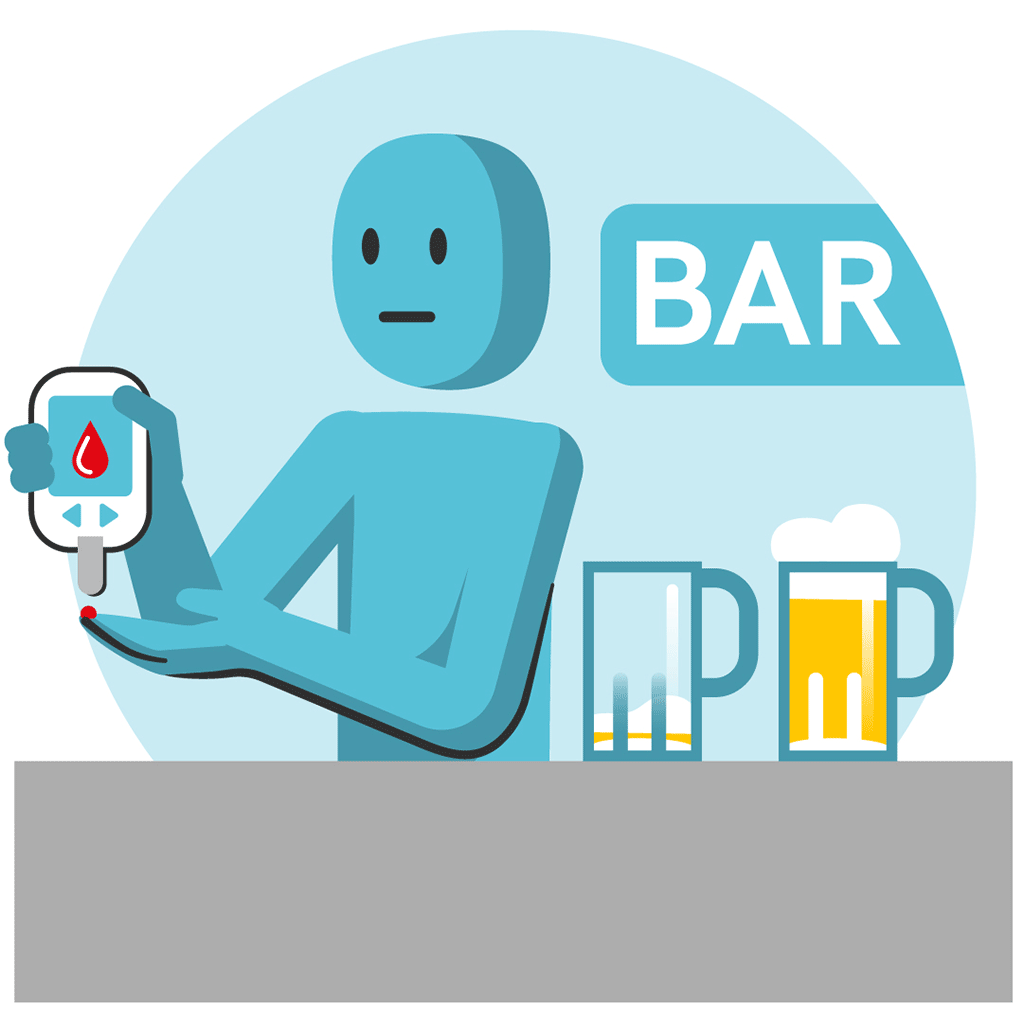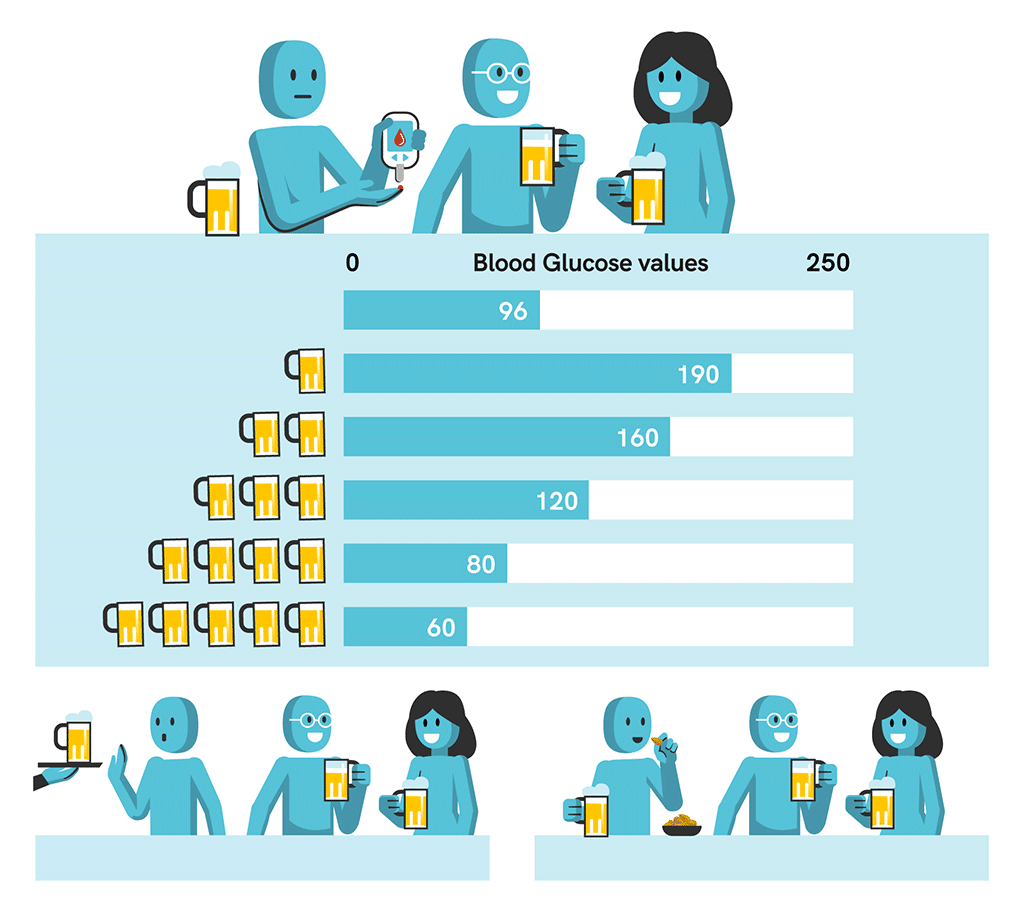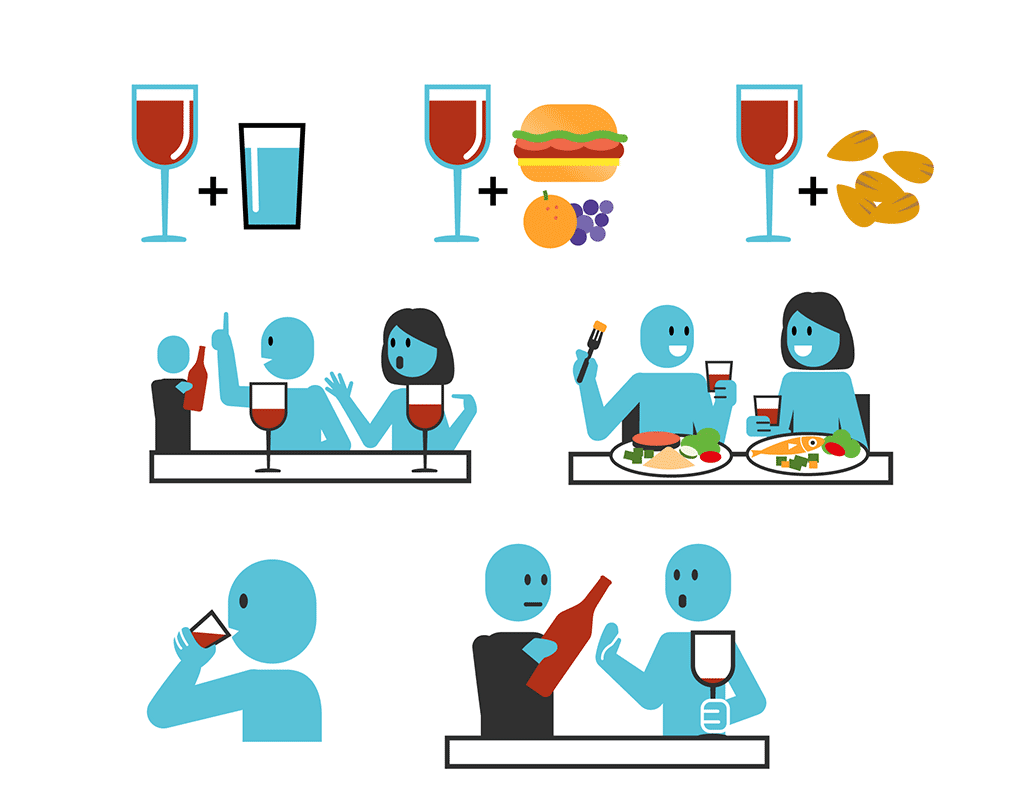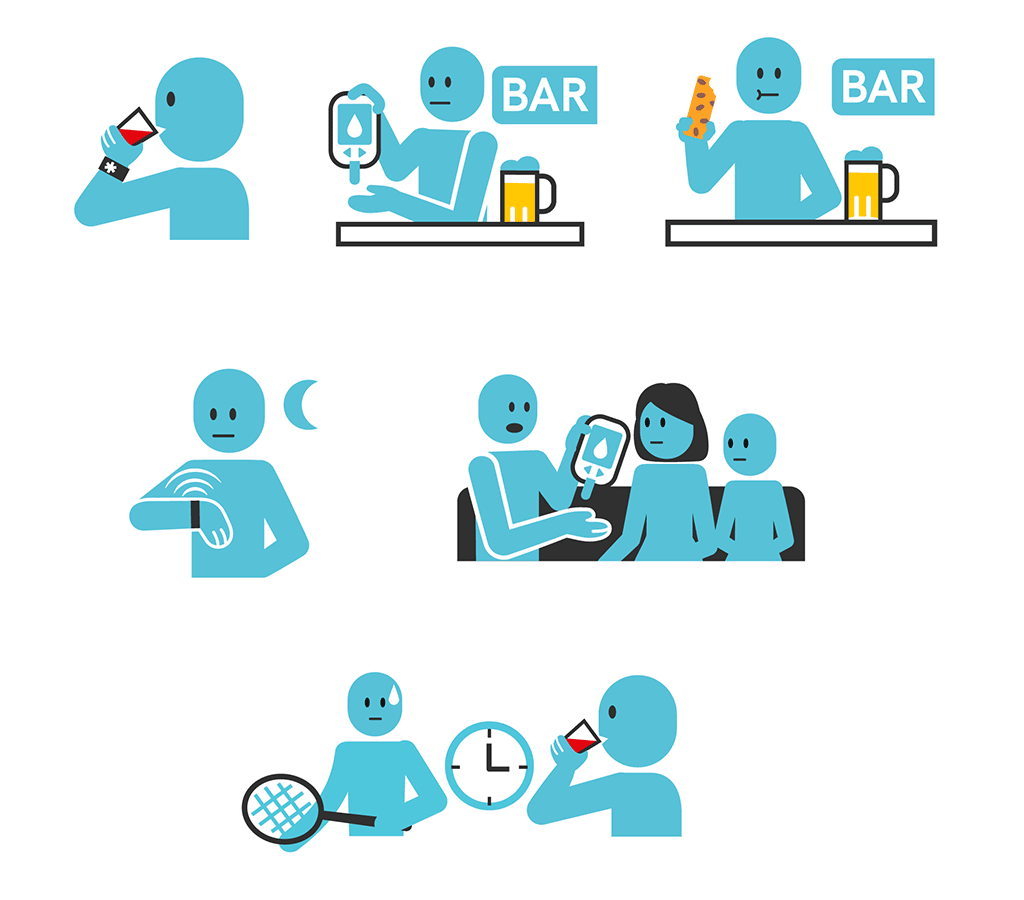Diabetes and Alcohol
Alcohol can both raise and lower blood glucose. Beer, wine, and mixed drinks contain carbohydrates from syrups and juices, just like carb-containing food items. These will raise your blood glucose.

At the same time, drinking alcohol can also lower your blood glucose because alcohol blocks the production of glucose in the liver. (gluconeogenesis). When this happens, the “emergency glucose stores” in the liver are used and not available if your blood glucose drops too low.

If a person is drinking and their body has already used up their emergency glucose stores, they fall at risk for hypoglycemia. This situation is especially dangerous if you take a blood glucose-lowering medication or insulin.
Drink Safely
Alcohol can inhibit your judgment, making it more likely that you will stray from your eating plan, forget to check blood glucose level, or forget to take a dose of medication. Staying safe means limiting your alcohol intake.

You should also never drink on an empty stomach. If you’re going to have a drink, have it with a meal or snack that has adequate carbohydrates.
Safety Points
- Wear medical alert identification.
- Check your blood glucose more frequently.
- Carry carb snackssnack and quick carbs for treating lows.
- Set an alarm on loud to wake yourself up to check your blood glucose in the middle of the night.
- Educate family and friends on how to assist you, should the need arise.
- Be especially careful about drinking after exercise because you’re even more prone to hypoglycemia.

Leave a Reply